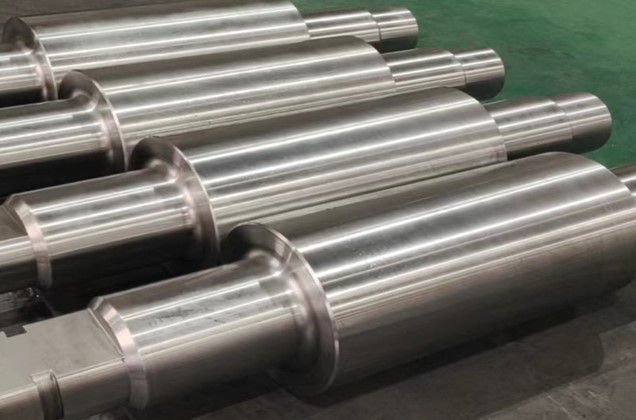ICDP (Indefinite Chill Double Poured) work rolls are a type of high-performance roll commonly used in the rolling process, especially in finishing stands of hot strip mills. These rolls are characterized by a unique metallurgical structure achieved through the double pouring process, where the outer shell and core are poured separately with different materials. This gives ICDP rolls a combination of toughness, wear resistance, and resistance to surface cracking, making them ideal for high-demand rolling applications.
Characteristics of ICDP Work Rolls
ICDP work rolls consist of an outer layer, often made from a high chromium alloy, and a softer core material. The outer shell of the roll provides excellent resistance to wear and surface damage due to its high hardness. This makes ICDP rolls particularly useful in applications where the rolls are exposed to abrasive materials, and where maintaining surface quality is critical.
Additionally, the roll’s shell is designed to maintain a consistent hardness even after significant use, ensuring that the surface properties remain stable over time. This makes them an excellent choice for rolling operations that require precision and longevity.
Key Differences Between ICDP Work Rolls and Standard Work Rolls
Material Composition: Standard work rolls are typically made from a single material throughout, usually a form of steel or iron alloy. In contrast, ICDP work rolls use the double pouring process, which gives them a harder outer shell and a more flexible core. This difference in material composition gives ICDP rolls a longer lifespan in harsh operating conditions.
Wear Resistance: The unique composition of ICDP rolls gives them superior wear resistance compared to standard work rolls. The hard outer shell is resistant to abrasion and thermal fatigue, which helps in maintaining the surface quality of the rolled products over time. Standard work rolls may wear down more quickly, especially under continuous exposure to high temperatures and pressures.
Surface Finish Quality: ICDP rolls are known for their ability to maintain a high-quality surface finish. Because of the harder shell, these rolls tend to produce better surface finishes on the rolled material, especially in applications where surface smoothness and consistency are essential. In comparison, standard work rolls may not provide the same level of surface quality over extended periods of use.
Heat and Crack Resistance: ICDP rolls are engineered to withstand thermal shocks and cracking, which are common issues in high-temperature rolling environments. The inner core’s flexibility and the outer shell’s hardness work together to absorb stress and prevent cracks. Standard work rolls, being made of a uniform material, may be more susceptible to cracking under similar conditions.
Cost and Application: While ICDP work rolls may be more expensive due to their advanced manufacturing process and materials, they offer a longer operational life and reduced maintenance costs. Standard work rolls are generally less costly upfront but may require more frequent replacements and repairs.
ICDP work rolls stand out for their durability, wear resistance, and ability to maintain high surface quality in demanding rolling applications. These features make them particularly suited for industries requiring high precision and longevity, compared to standard work rolls that may not offer the same performance over time.
Post time: Sep-24-2024





